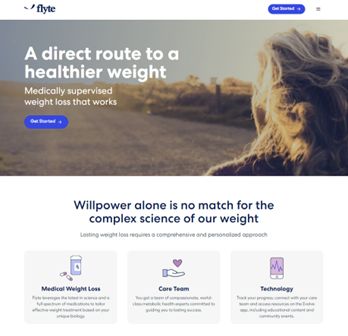Three health care trends to keep a pulse on for 2024
Shifting dynamics in consumer behaviour, emerging technology and consumer-led health care are causing health care organisations in the U.S. to take notice. Discover three health care trends you should care about.


Christie Mitchell
20 March 2024
4 min read
How Gen Z is reshaping the health care industry
As the industry slowly shifts its focus from caring for patients to prioritizing wellness, Gen Z will expedite this evolution – and companies that embrace these changes will be better positioned to attract Gen Z patients. Gen Zers (born between 1997 and 2012) currently make up 20% of the U.S. (25% globally), but only account for 3% of total health care spending, since on average they are healthier than other generations.
It’s important to consider the preferences and openness to sharing that differ between generations when exploring offerings that address ‘whole person health’. While Gen Z are younger and generally healthier, creating offerings that include the ability to track and manage their mental and physical wellbeing (e.g., fitness trackers) can create greater connection and opportunity to support them during these formative phases of life. And since Gen Z is utilizing social media and data in ways other generations never have, there is an even greater opportunity for brands to meet these people where they are.
Our proprietary study ‘Ready for the Zoomers’ revealed Gen Z’s openness to discussing and embracing health care – specifically in the area of mental health. As the prevalence of anxiety and depression spiked amid the pandemic, Gen Z has made moves to destigmatize mental health and view mental health as simply an additional dimension of their health. Despite social media contributing to stress among Gen Z in the U.S. – as they compare themselves to others (45%) and feel external pressure (17%) – it also serves as a vital source of information and news. For this reason, it’s important for health care providers and brands to consider social media and other digital methods to connect with patients, and combat misinformation, encouraging informed decision-making.
Exploring the ‘food is medicine’ concept
Many cultures around the world have long believed in the medicinal powers of food. As people in the U.S. are seeking more holistic, alternative and preventative health care, many are adopting the same belief. Insurers are also beginning to explore the ‘food is medicine’ concept and how prescribing medically tailored meals can help prevent or treat conditions such as diabetes and heart disease to bolster health equity and improve outcomes. Kaiser Permanente, for instance, shares healthy recipes on its website and teams up with grocery deliverer Instacart to study the impact of convenient access to nutritious food on health outcomes. Pamela Schwartz, executive director of food security at Kaiser Permanente says: “It’s pretty clear that food is medicine efforts hold a lot of potential. It’s critical that we continue to demonstrate the impact these programs have on health outcomes.”

As more people are seeking holistic care options, ‘food is medicine’ emerges as a relevant avenue to explore for health care brands. They can play a role in providing information about the health benefits of specific foods and dietary choices, using online platforms and digital resources to share healthy recipes and nutritional tips. Advocating for and supporting initiatives that enhance access to nutritious food is another way forward.
Accessible and personalized weight management
Many U.S. companies are currently grappling with health insurance coverage issues for employees when it comes to GLP-1 drugs such as Wegovy or Zepbound for weight loss. According to a survey of 205 companies by the International Foundation of Employee Benefit Plans, 76% provide employee coverage for diabetes, while only 27% offer coverage for weight loss. And 13% consider expanding coverage for weight loss.
Rather than implementing an all-or-nothing approach to coverage, Connecticut state health plan members seeking weight loss medication must first enrol in Flyte – a clinical lifestyle management program that offers online weight-management tools. This program offers personalized care plans – and in doing so helps determine the best course of treatment for the individual and will grant coverage for weight-loss medication or other forms of weight-loss treatment accordingly.

The Connecticut’s state health plan is just one example of how accessibility and personalization in health care is reaching new heights. These drugs are expensive and sometimes require lifelong usage. As we see an increased need and desire for drugs like this in the U.S., employers should consider ways to support their employees in this quest for health and wellness that is mutually beneficial.
The health care industry landscape is constantly evolving – especially with interventions embracing the ‘food as medicine’ mindset and personalization through pairing weight loss drugs with whole care programs. Currently, a new generation is emerging, bringing its own set of needs and perspectives. Because of this, it is vital that brands understand what matters to consumers so they can be in lock-step when developing strategies and offerings that meet those needs.
Want to learn even more about health care trends on the horizon? Check out our Health care 2030 eBook.
Health care 2030
Ready to dive deeper into the future of health care in the U.S.? Discover five transformative trends that are shaping the industry in our ‘Health care 2030’ eBook.